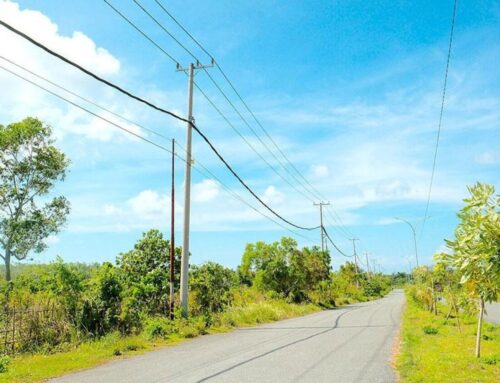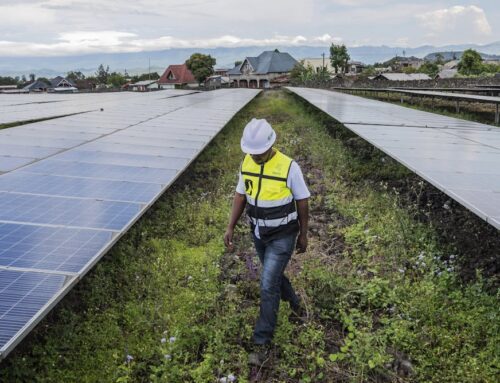Canada breaks goal drought, beats Venezuela in a lifeless environment
November 19, 2025
FORT LAUDERDALE, Fla. – The Canadian men’s national team’s end to 2025 solidified who the team are right now and where it has to improve before the World Cup. With a 2-0 friendly win over Venezuela, the Canadians showed typically resolute defending, more goals than they’ve scored as of late – and the kind of emotion that could end up hurting them next summer.
Canada got goals from Ismaël Koné and Promise David and locked down its third clean sheet in a row, which should continue to bolster confidence as a stellar defensive outfit at the World Cup. In a game that saw both teams finish with 10 men, Canada controlled the tempo of play and owned more shots on target and big chances than Venezuela, a team that missed out on qualifying for the World Cup and is ranked 50th in the world by FIFA.
“We learned (to show) maturity and (have) the understanding of how to handle the match,” Canada head coach Jesse Marsch said of Canada’s stable performance.
Outside of a late Venezuela chance in front of goal that required Maxime Crépeau to make a quick save, Canada never looked that tested by Venezuela. Canada was able to control the game and press effectively without many of their stars, all while never really hitting fifth gear. That’s a sign that Canada’s player pool remains strong but also that Canada Soccer must find stronger opponents to prepare for the Word Cup.
Here are The Athletic’s takeaways from Canada’s win.
Jones impresses in Canada debut
After finally completing his citizenship oath the day before the friendly and becoming eligible to play for Canada, Alfie Jones didn’t show any signs of nerves in his debut. The Middlesbrough center back instead showed both excellent positioning and willingness to get physical in ugly areas of the pitch. That helped Canada keep a clean sheet.
Jones played as well as he did without Canada’s longstanding center back beside him: Derek Cornelius was forced out of the game in the 33rd minute with injury. To play with the confidence he did without a starter beside him was impressive.
What also stood out was an underappreciated element of his game: Jones moved the ball cleanly and quickly out of trouble when he had to. He appeared to understand his new teammates movements far better than he probably should have at this point.
“With the ball, I thought he was also outstanding and help set up plays and help the initial line of breaking down the opponent,” Marsch said.
Watching how seamlessly Jones slotted into Canada’s lineup and how he took on responsibility in a meaningful way, it became easy to imagine him in Canada’s World Cup roster next summer.
Elsewhere in the back, Joel Waterman came in for Cornelius and impressed with his typical resolve. His yellow card in the 89th minute for pushing a Venezuelan player was completely unnecessary, but Marsch does appreciate the emotion Waterman brings. With Marsch turning to Waterman in that spot, his World Cup roster place also looks close to locked up.
Lackluster crowd and support hurts Canada
A generous estimate for the attendance at Chase Stadium? Maybe 300 people? The lackluster support was due to a lack of publicity around the game as well as a lack of local interest in Venezuela. The South American side finished eighth out of 10 countries in CONMEBOL World Cup qualifying and doesn’t have much to play for.
Of the four stands at Chase Stadium, which is currently home to MLS’s Inter Miami, three were completely barren of fans. Marsch’s instructions for his players could easily be heard throughout the stadium.
The atmosphere was more akin to a training match than a competitive friendly with a World Cup on the horizon. It also presented a stark departure from Canada’s October friendly against Colombia in New Jersey, where a sold-out crowd of largely Colombian fans made for a tense but thrilling environment. That match presented something more akin to what a World Cup match will feel like. Yet here, you have to believe Canada will come away wanting more full stadiums and tense environments to better prepare their players for the upcoming World Cup.
And so if there was one thing Canada Soccer will have learned, it’s that choosing venues that could sell out as well as opposition with healthy traveling support will be optimal. Canada now has just four opportunities for friendlies before the World Cup, and it cannot afford to play in this kind of environment again.
Koné breaks Canada’s goal drought, but leaves with red card
After not scoring for the last three games, Canada took a stranglehold on the match in the 23rd minute when its creative centerpiece found open space and converted, as Koné corralled a loose ball near the penalty spot and quickly scored his fourth goal for Canada.
He played with the kind of composure Canada will need as well – at least for the first hour of the match. Three minutes after Venezuela went down a man after a red card to David Martinez, Koné was shown a red of his own in the 60th minute after landing a high tackle on Venezuelan forward Kevin Kelsy. Replays showed that Koné hardly made contact, if at all, and Canada’s players mounted a lengthy protest.
Koné had played the hour up to that point with the kind of bravado on and off the ball that Canada will need to have success at the World Cup. After struggling with his form last season in Marseille in France’s Ligue 1, he has since re-discovered his creativity and confidence with a move to Sassuolo in Italy’s Serie A. Crucially, Koné was met on the touchline with support and positivity from Marsch. After Koné was substituted off during a September friendly against Romania, he had a heated discussion with the manager. Yet there were no signs of disappointment from Marsch over Tuesday’s physical play.
Nevertheless, in addition to the red, Canada ended up being shown five yellow cards. That physicality will have to be better managed at the World Cup.
Search
RECENT PRESS RELEASES
Related Post



